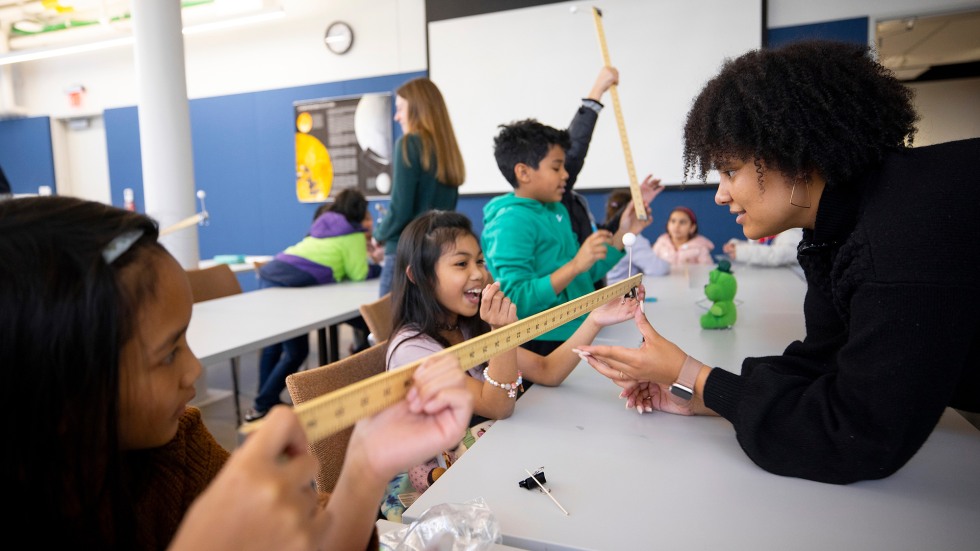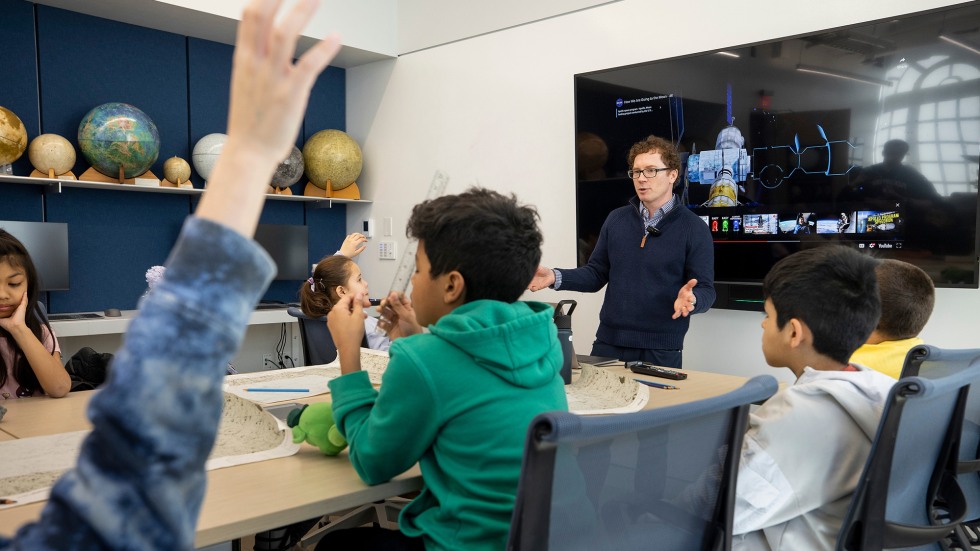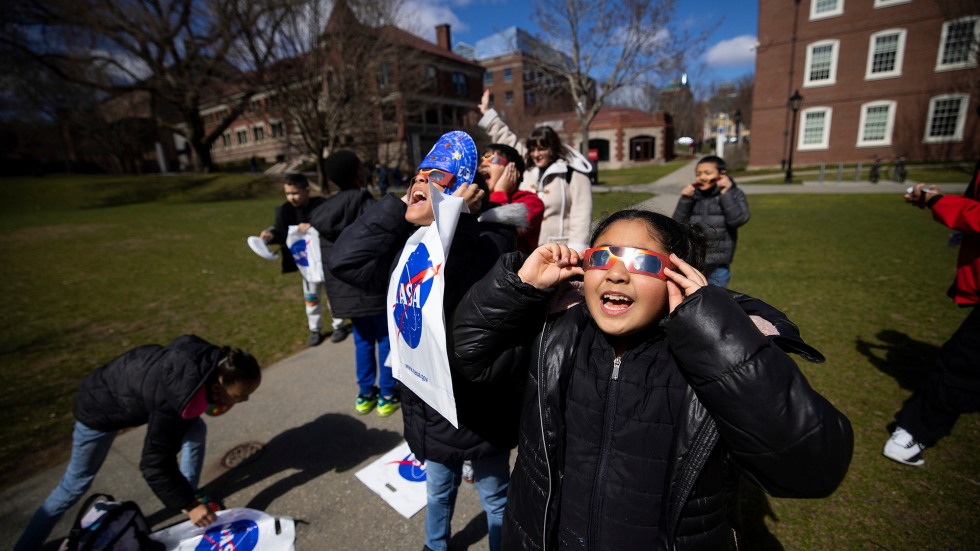PROVIDENCE, R.I. [Brown University] — On Monday, April 8, the moon will step in front of the biggest spotlight in the sky, setting the stage for millions of onlookers to witness its grand moment in the sun and the spectacular darkness that comes with it.
It’s no wonder the solar eclipse has astronomers, planetary scientists and enthusiasts around the country buzzing as they gear up for trips to catch the celestial event, organize watch parties and educate a curious public about solar phenomena. Getting in on the fun are scientists and students from Brown’s Department of Physics and Department of Earth, Environmental and Planetary Sciences — and the excitement is pervasive, regardless of whether they’ve seen dozens of eclipses or this is their very first one.
“To be able to see with our own eyes celestial bodies passing in front of each other is very special,” said DEEPS associate professor Ingrid Daubar, who will be among dozens of Brown faculty, staff and students traveling to prime viewing locations along the path of totality — that’s eclipse talk for where the moon will completely obscure the sun and plunge the area into temporary darkness.
Another astronomer heading out of town is Robert Horton, manager of Brown’s astronomy labs and the Ladd Observatory, who will be in Rochester, New York. Like Daubar, who will head to Dallas, Horton looks forward to taking in the total solar eclipse with his family and anyone else who gathers with them.
“The collective sound of awestruck people is really something to experience,” Horton said. “People by their very nature enjoy sharing such experiences together.”


